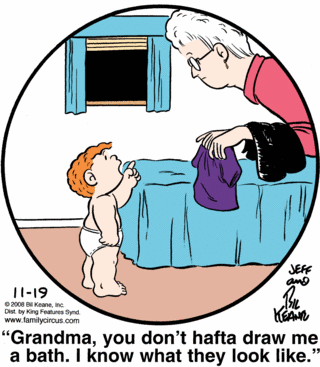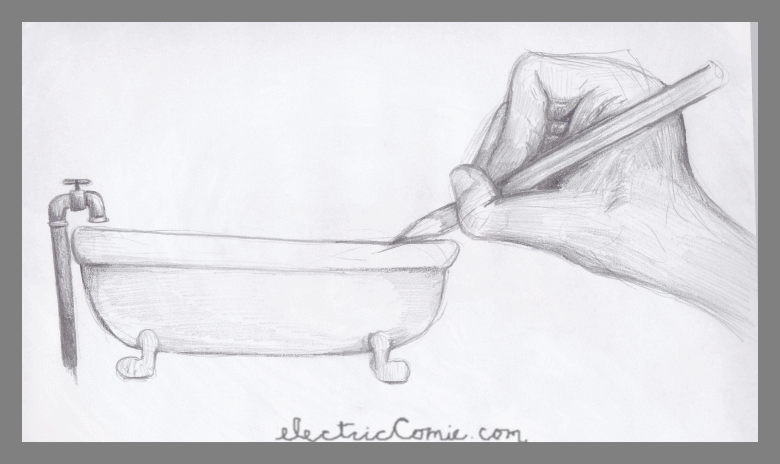Hello everyone!
Today’s comic is Garfield.
Comic Breakdown
“Around here, it’s easy to spot a change in the seasons.” – Garfield’s
thoughts
FWUMP! – noise of something being dumped (the something is snow)
“Cartoon weather isn’t very subtle.” – Garfield’s explanations
What is going on?
Garfield is explaining that time goes very quickly in cartoons. Cartoons are a fictional, made up, version of
the world through pictures. A way to
show quick change is to go from one season to the next in just one moment. The weather went right from summer to winter
in this cartoon. This is done to show
great change to the audience.
What does “subtle” mean?
The word “subtle”
(pronounced “sud-dle”) means fine and delicate.
It is an adjective (describes a thing or situation) that is used to
describe something that is very light, low key, or not very obvious.
THIS IS SUBTLE
The seasons changing from summer to winter (skipping autumn) is not
subtle because the season change is so big.
THIS IS NOT SUBTLE



.jpg)


.jpg)
.jpg)











































.jpg)

.jpg)
